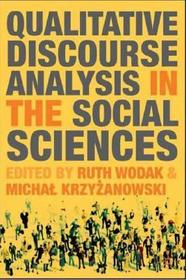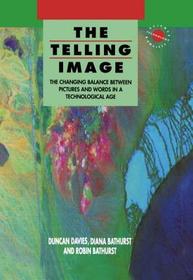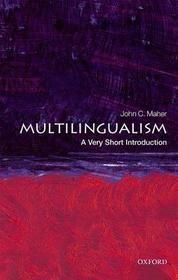
-
10% KEDVEZMÉNY?
- A kedvezmény csak az 'Értesítés a kedvenc témákról' hírlevelünk címzettjeinek rendeléseire érvényes.
- Kiadói listaár GBP 9.99
-
4 772 Ft (4 545 Ft + 5% áfa)
Az ár azért becsült, mert a rendelés pillanatában nem lehet pontosan tudni, hogy a beérkezéskor milyen lesz a forint árfolyama az adott termék eredeti devizájához képest. Ha a forint romlana, kissé többet, ha javulna, kissé kevesebbet kell majd fizetnie.
- Kedvezmény(ek) 10% (cc. 477 Ft off)
- Kedvezményes ár 4 295 Ft (4 091 Ft + 5% áfa)
Iratkozzon fel most és részesüljön kedvezőbb árainkból!
Feliratkozom
4 772 Ft

Beszerezhetőség
Becsült beszerzési idő: A Prosperónál jelenleg nincsen raktáron, de a kiadónál igen. Beszerzés kb. 3-5 hét..
A Prosperónál jelenleg nincsen raktáron.
Why don't you give exact delivery time?
A beszerzés időigényét az eddigi tapasztalatokra alapozva adjuk meg. Azért becsült, mert a terméket külföldről hozzuk be, így a kiadó kiszolgálásának pillanatnyi gyorsaságától is függ. A megadottnál gyorsabb és lassabb szállítás is elképzelhető, de mindent megteszünk, hogy Ön a lehető leghamarabb jusson hozzá a termékhez.
A termék adatai:
- Kiadó OUP Oxford
- Megjelenés dátuma 2017. május 25.
- ISBN 9780198724995
- Kötéstípus Puhakötés
- Terjedelem176 oldal
- Méret 174x114x10 mm
- Súly 130 g
- Nyelv angol
- Illusztrációk 8 black and white images 0
Kategóriák
Rövid leírás:
John C. Maher explains why societies everywhere have become more multilingual, despite the disappearance of hundreds of the world languages. He considers our notion of language as national or cultural identities, and discusses why nations cluster and survive around particular languages even as some territories pursue autonomy or nationhood.
TöbbHosszú leírás:
The languages of the world can be seen and heard in cities and towns, forests and isolated settlements, as well as on the internet and in international organizations like the UN or the EU. How did the world acquire so many languages? Why can't we all speak one language, like English or Esperanto? And what makes a person bilingual? Multilingualism, language diversity in society, is a perfect expression of human plurality. About 6,500-7,000 languages are spoken, written and signed, throughout the linguistic landscape of the world, by people who communicate in more than one language (at work, or in the family or community). Many origin myths, like Babel, called it a 'punishment' but multilingualism makes us who we are and plays a large part of our sense of belonging. Languages are instruments for interacting with the cultural environment and their ecology is complex. They can die (Tasmanian), or decline then revive (Manx and Hawaiian), reconstitute from older forms (modern Hebrew), gain new status (Catalan and Maori) or become autonomous national languages (Croatian). Languages can even play a supportive and symbolic role as some territories pursue autonomy or nationhood, such as in the cases of Catalonia and Scotland.
In this Very Short Introduction John C. Maher shows how multilingualism offers cultural diversity, complex identities, and alternative ways of doing and knowing to hybrid identities. Increasing multilingualism is drastically changing our view of the value of language, and our notion of the part language plays in national and cultural identities. At the same time multilingualism can lead to social and political conflict, unequal power relations, issues of multiculturalism, and discussions over 'national' or 'official' languages, with struggles over language rights of local and indigenous communities. Considering multilingualism in the context of globalization, Maher also looks at the fate of many endangered languages as they disappear from the world.
ABOUT THE SERIES: The Very Short Introductions series from Oxford University Press contains hundreds of titles in almost every subject area. These pocket-sized books are the perfect way to get ahead in a new subject quickly. Our expert authors combine facts, analysis, perspective, new ideas, and enthusiasm to make interesting and challenging topics highly readable.
Tartalomjegyzék:
A multilingual world
The Causes of Multilingualism
Bilingualism: one mind many languages
Multiculturalism, Myth and Controversies
Multilingual People: footballers and opera singers
Politics, Language and the State
Lingua Franca and Constructed Languages
Identity and Culture
Education and Language Awareness
References
Further Reading
Index

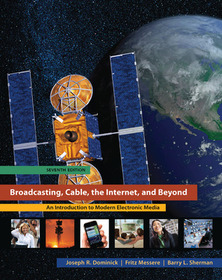
Broadcasting, Cable, the Internet, and Beyond: An Introduction to Modern Electronic Media
66 306 Ft
59 676 Ft
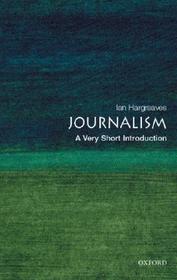
Journalism: A Very Short Introduction: A Very Short Introduction
3 817 Ft
3 435 Ft




